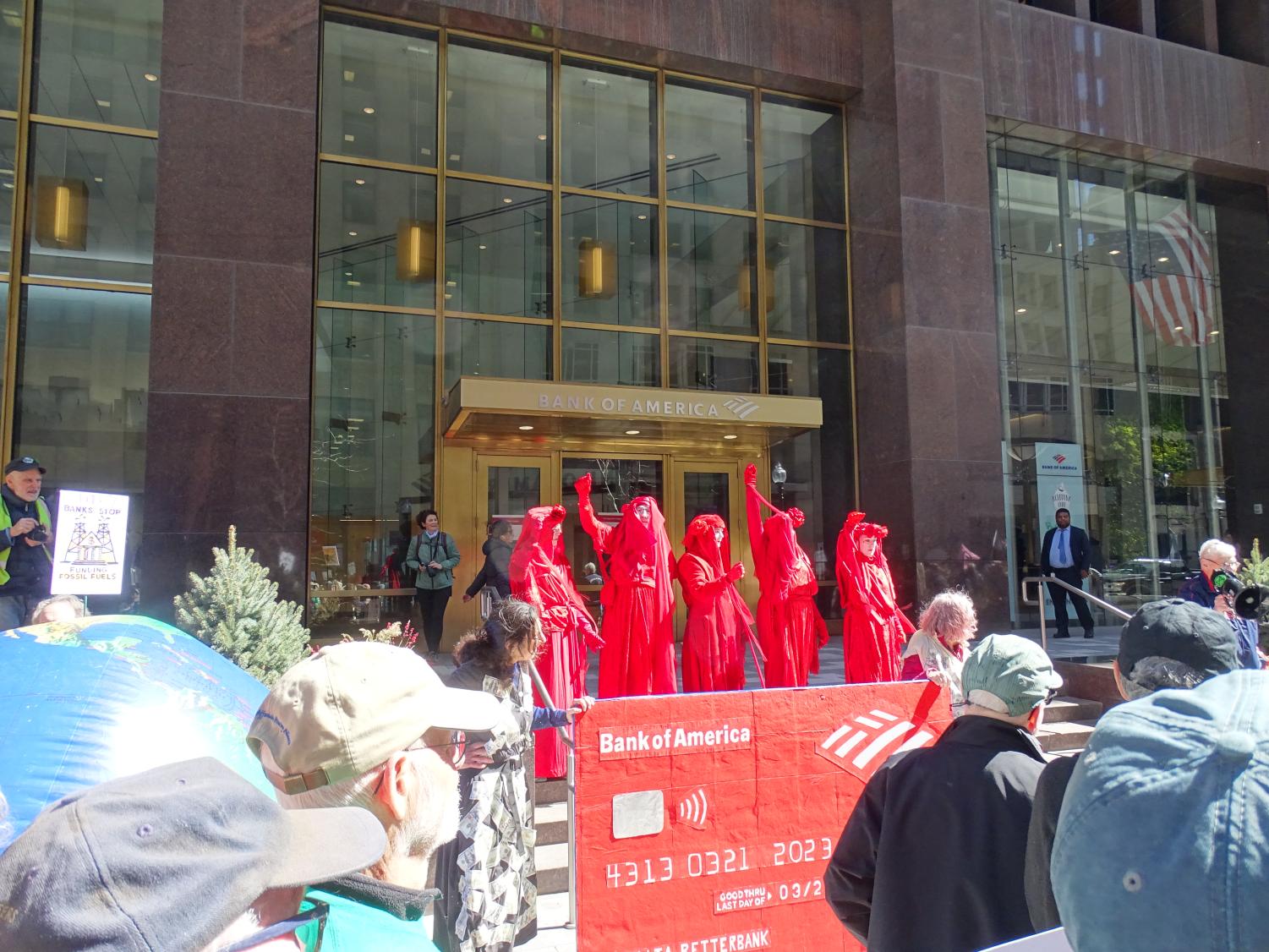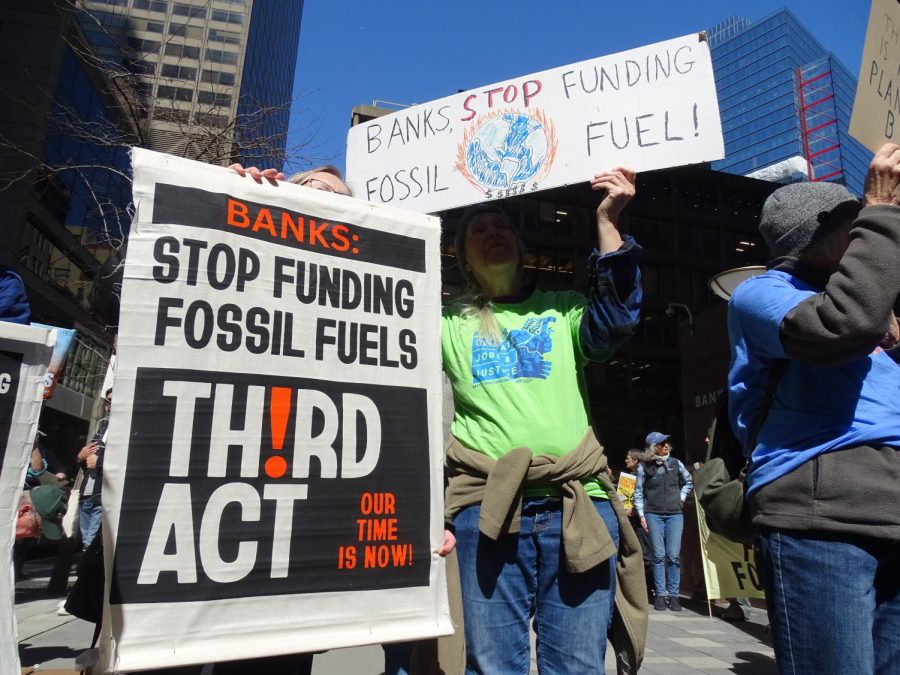Boston environmental activists join National Day of Protest against banks
Demonstrators hold up signs outside Chase Bank and Bank of America in downtown Boston March 21. Environmental activists called for people to divest from banks with ties to the fossil fuel industry.
April 5, 2023
Several dozen environmental activists marched through downtown Boston March 21, staging protests in front of Chase Bank and Bank of America and calling on consumers to divest from all banks with ties to the fossil fuel industry.
March 21 was a day of nationwide environmentalist action, as activists staged demonstrations at over 100 banks across the U.S. The march in Boston began at the entrance of the Chase Bank branch at the intersection of Washington and Winter streets. Representatives of several environmental activist organizations, including Third Act, 350 Mass, Sunrise Movement, Extinction Rebellion and the Boston Brigade of Activist Musicians, or BABAM, were in the crowd that day.
JPMorgan Chase and Bank of America have consistently ranked in the top four banks worldwide for investments in the fossil fuel industry.
“The real scandal of this situation is that it’s a relatively small number of people who are driving this problem, who have made the decision that making more profit…is more important than the wellbeing of humanity,” said protester Roger Rosen. “They are committing the greatest crime in the history of the human race.”
Once the protest began, the activists set up their props: a giant inflatable Earth balloon and two large cardboard credit card mock-ups. The Red Rebels, a performance art group from Extinction Rebellion, lined up silently behind the speakers as various activists went to the microphone. Three members of BABAM arrived with brass instruments and began to punctuate the crowd’s chants with various riffs and ostinatos.
“I can’t always be assured of the effectiveness of any single event, or group of events,” said Kirk Israel, one of the founders of BABAM and a tuba player at the rally. “I consider my role is to provide musical energy, which I definitely know [at] an individual event really changes the feel of it.”

After a series of speeches rebuking Chase Bank’s support for the fossil fuel industry, two protestors cut up their Chase credit cards to cheers from the crowd and fanfare from the impromptu brass band. Another activist used an electric chainsaw to cut one of the huge credit card mock-ups in two.
The crowd then marched a third of a mile to the Bank of America branch on Federal Street. Once again, two activists cut up their credit cards, as security guards and bank tellers watched through the glass front doors. The chainsaw chewed through the second cardboard credit card mock-up.
“I have had a Bank of America card — or its predecessor card — for 50 years,” Seth Evans said in a speech, holding up his credit and debit cards. “And I’ve been looking forward to this moment for quite a long time.”
According to a 2021 report by the environmental action group Banking on Climate Chaos, JPMorgan Chase has invested $317 billion in fossil fuel financing from 2016 to 2020, more than any other bank in the world. Bank of America invested close to $200 billion in the same time frame, making it the fourth-ranked bank in the world for fossil fuel expenditure. In 2022, shareholders at JPMorgan Chase and Bank of America overwhelmingly voted against resolutions that would have curtailed their bank’s investments in fossil fuels.
“For far too long, [the banks] have been able to fund the fossil fuel industry and other investments in natural resource extraction to the detriment of the planet and future generations,” said Meryl Brott, an organizer with Extinction Rebellion. “It’s more than time to clean up your act, [and] do the right thing, because you’re also going to need a livable planet.”


















